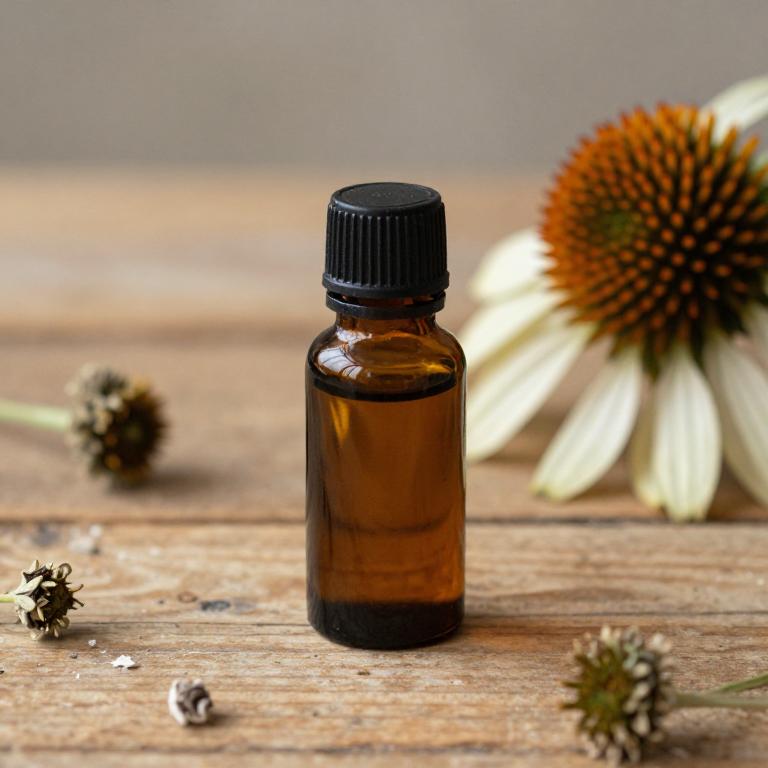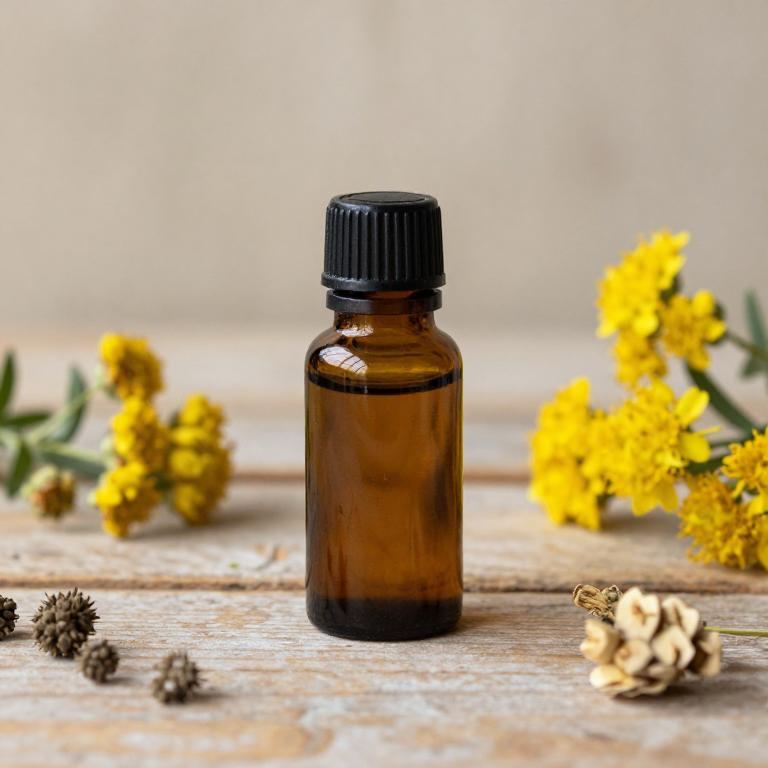10 Best Herbal Essential Oils For Prostatitis

Herbal essential oils have gained attention for their potential therapeutic benefits in managing symptoms of prostatitis, an inflammatory condition of the prostate gland.
Oils such as lavender, eucalyptus, and ginger are often used due to their anti-inflammatory, antimicrobial, and soothing properties. These essential oils can be applied topically or used in aromatherapy to help reduce pain, swelling, and discomfort associated with prostatitis. However, it is important to consult with a healthcare professional before using essential oils, as they can interact with medications or cause adverse reactions in some individuals.
While not a substitute for conventional medical treatment, herbal essential oils may serve as a complementary approach to support overall prostate health.
Table of Contents
- 1. Turmeric (Curcuma longa)
- 2. Ginger (Zingiber officinale)
- 3. Stinging nettle (Urtica dioica)
- 4. Thyme (Thymus vulgaris)
- 5. Rosemary (Rosmarinus officinalis)
- 6. Salvia (Salvia officinalis)
- 7. Black pepper (Piper nigrum)
- 8. Echinacea (Echinacea purpurea)
- 9. St. john's wort (Hypericum perforatum)
- 10. Thistle (Silybum marianum)
1. Turmeric (Curcuma longa)

Curcuma longa, commonly known as turmeric, contains a bioactive compound called curcumin, which has been extensively studied for its anti-inflammatory and antioxidant properties.
Essential oils derived from Curcuma longa may offer therapeutic benefits for conditions like prostatitis, which involves inflammation of the prostate gland. These oils can help reduce oxidative stress and inhibit inflammatory pathways, potentially alleviating symptoms associated with chronic prostatitis. However, it is important to note that while preliminary research is promising, more clinical studies are needed to fully establish the efficacy and safety of Curcuma longa essential oils in treating prostatitis.
As with any herbal remedy, it should be used under the guidance of a qualified healthcare professional.
2. Ginger (Zingiber officinale)

Zingiber officinale, commonly known as ginger, contains essential oils that have been studied for their potential therapeutic effects on prostatitis, an inflammatory condition of the prostate gland.
These essential oils, rich in compounds like zingiberene and gingerol, exhibit anti-inflammatory and antimicrobial properties that may help reduce swelling and infection in the prostate. Research suggests that ginger essential oils could support urinary tract health by alleviating pain and discomfort associated with prostatitis. However, while preliminary studies are promising, more clinical trials are needed to confirm their efficacy and safety in treating this condition.
As with any herbal remedy, it is important to consult a healthcare provider before using ginger essential oils for prostatitis.
3. Stinging nettle (Urtica dioica)

Urtica dioica, commonly known as stinging nettle, contains various bioactive compounds that have been explored for their potential therapeutic effects.
While it is primarily known for its leaves and roots, some studies suggest that essential oils derived from different parts of the plant may possess anti-inflammatory and antimicrobial properties. These properties have led to interest in using Urtica dioica essential oils as a complementary treatment for conditions like prostatitis, which involves inflammation of the prostate gland. However, research on the specific efficacy and safety of these oils for prostatitis is limited, and more clinical trials are needed to establish their role in conventional treatment protocols.
As with any herbal remedy, it is important to consult a healthcare professional before incorporating Urtica dioica essential oils into a treatment plan for prostatitis.
4. Thyme (Thymus vulgaris)

Thymus vulgaris, commonly known as thyme, is a herb widely used in aromatherapy and traditional medicine for its potent essential oils.
The essential oils derived from thyme contain compounds like thymol and carvacrol, which exhibit strong antimicrobial and anti-inflammatory properties. These properties make thyme essential oil a potential natural remedy for prostatitis, an inflammation of the prostate gland often caused by bacterial infections. When used in diffusers or topical applications, thyme essential oil may help reduce inflammation and support urinary tract health.
However, it is important to consult with a healthcare professional before using thyme essential oil, as it can be potent and may interact with certain medications.
5. Rosemary (Rosmarinus officinalis)

Rosmarinus officinalis, commonly known as rosemary, produces essential oils that have been studied for their potential therapeutic benefits in managing prostatitis, an inflammation of the prostate gland.
These essential oils contain bioactive compounds such as camphor, cineole, and rosmarinic acid, which exhibit antimicrobial, anti-inflammatory, and antioxidant properties. Clinical and experimental studies suggest that rosemary essential oil may help reduce inflammatory markers and improve urinary symptoms associated with prostatitis. Due to its natural origin and multiple therapeutic actions, rosemary essential oil is considered a promising complementary therapy in the treatment of prostatitis.
However, further research is needed to establish standardized protocols and confirm its efficacy in human clinical settings.
6. Salvia (Salvia officinalis)

Salvia officinalis, commonly known as sage, contains essential oils that have been studied for their potential therapeutic effects on prostatitis, an inflammatory condition of the prostate gland.
The essential oils derived from sage, particularly those rich in compounds like cineole and thymol, exhibit antimicrobial and anti-inflammatory properties that may help reduce infection and inflammation associated with prostatitis. These oils can be used in aromatherapy, topical applications, or diffused to support prostate health and alleviate symptoms such as pain and urinary discomfort. However, it is important to consult with a healthcare professional before using sage essential oils, as they may interact with certain medications or cause adverse reactions in some individuals.
Overall, while sage essential oils show promise as a complementary therapy for prostatitis, they should be used as part of a holistic treatment plan under medical guidance.
7. Black pepper (Piper nigrum)

Piper nigrum, commonly known as black pepper, contains essential oils that have been explored for their potential therapeutic benefits, including support for conditions like prostatitis.
The essential oils derived from black pepper contain compounds such as beta-caryophyllene and other bioactive molecules that exhibit anti-inflammatory and antimicrobial properties. These properties may help reduce inflammation and infection in the prostate gland, which are common factors in prostatitis. However, it is important to note that while preliminary research suggests potential benefits, more clinical studies are needed to confirm the efficacy and safety of piper nigrum essential oils for this condition.
As with any herbal remedy, consultation with a healthcare professional is recommended before use, especially for individuals with pre-existing medical conditions or those taking other medications.
8. Echinacea (Echinacea purpurea)

Echinacea purpurea, commonly known as purple coneflower, is a traditional herbal remedy often used for its immune-boosting properties.
While it is primarily recognized for its role in supporting the immune system, some studies suggest that its essential oils may have anti-inflammatory and antimicrobial effects that could be beneficial for conditions like prostatitis. These essential oils contain compounds such as alkylamides and flavonoids, which may help reduce inflammation and inhibit the growth of pathogens in the prostate gland. However, it is important to note that research on the specific efficacy of echinacea essential oils for prostatitis is limited, and more clinical studies are needed to confirm these potential benefits.
As with any herbal remedy, it is advisable to consult a healthcare professional before using echinacea purpurea essential oils for prostatic health.
9. St. john's wort (Hypericum perforatum)

Hypericum perforatum, commonly known as St. John's Wort, is a herbal plant whose essential oils have been explored for their potential therapeutic effects on prostatitis, an inflammatory condition of the prostate gland.
The essential oils derived from Hypericum perforatum contain bioactive compounds such as hyperforin and hypericin, which exhibit anti-inflammatory, antimicrobial, and antioxidant properties. These properties may help reduce inflammation and bacterial infection, common contributors to prostatitis. Some preliminary studies suggest that the use of Hypericum perforatum essential oils could support prostate health by modulating immune responses and reducing oxidative stress.
However, more clinical research is needed to fully understand its efficacy and safety in treating prostatitis.
10. Thistle (Silybum marianum)

Silybum marianum, commonly known as milk thistle, is a herb traditionally used for its liver-protective properties, but its essential oils have also been explored for their potential benefits in managing prostatitis.
The essential oils derived from Silybum marianum contain compounds such as flavonoids and fatty acids, which may exhibit anti-inflammatory and antioxidant effects. These properties could help reduce inflammation and oxidative stress in the prostate, which are key factors in prostatitis. While research on its direct efficacy for prostatitis is limited, some preliminary studies suggest it may support overall prostate health.
As with any herbal remedy, it is advisable to consult a healthcare professional before using Silybum marianum essential oils for prostatitis.